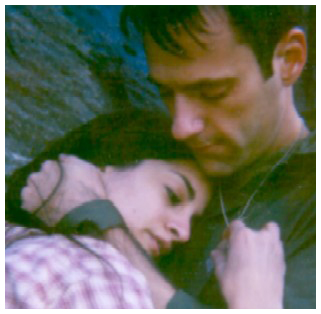Acclaimed SCREENPLAY Seeks PRODUCER
HOW HIS BRIDE CAME TO ABRAHAM
“When those who must not Love”
AMERICAN THEATRE
TRENCH WAR LOVE
By Derek S. McCracken
AMERICAN THEATRE
January 1, 2004
What if the fine line between love and hate were the frontline of a war? Actor-turned-playwright Karen Sunde explores that idea in How His Bride Came to Abraham, a Middle Eastern war drama making its world premiere at Kansas City’s Unicorn Theatre on Jan. 23.
Portraying conflict is what theatre does best, believes the Unicorn’s producing artistic director Cynthia Levin, who sought Sunde’s drama for her company’s 30th anniversary season. “The play has to be approached in images, snapshots, strong moments,” says Levin. “The whole picture is enticing, one that’s fair to both sides.”
Though Sunde wrote the play about a decade ago, its subject matter has remained relevant. Set in the 1990s in an occupied territory of Lebanon, How His Bride chronicles the plight of Abe, an Israeli Defense Forces second lieutenant. Injured, desperate and alone, he has taken refuge in a fort. Fighting fatigue, fear and delirium, Abe survives the only way he knows how: by keeping “a vision of my death, moving with me, clear.” The audience is part of the action–and the inaction. Boots shuffle across gravel. Artillery explodes nearby.
Enter Sabra, a Palestinian terrorist on the lam. Her only commonality with Abe: mutual distrust. Gender, religion and experience separate them, but circumstances have forced them together. A “boy meets girl” story, straddling borders both psychological and cultural, Bride is “at times poetic and formal, yet not a dream or a fairy tale,” says Levin. “It’s a modern parable, a warning.”
In the battle-scarred landscape of Sunde’s play, the one reminder of safety is a military radio crackling with intermittent news, what Levin describes as a “tin-can-and-string lifeline to the outside world. What begins as an over-whelming and instinctual feeling of hate festers before it dissipates and transforms into something else.”
It is this “something else”–tolerance, safety, peace–that makes confronting our enemies worth the while. As Sunde puts it, “We must know the heart of the enemy to be moved by it.”
